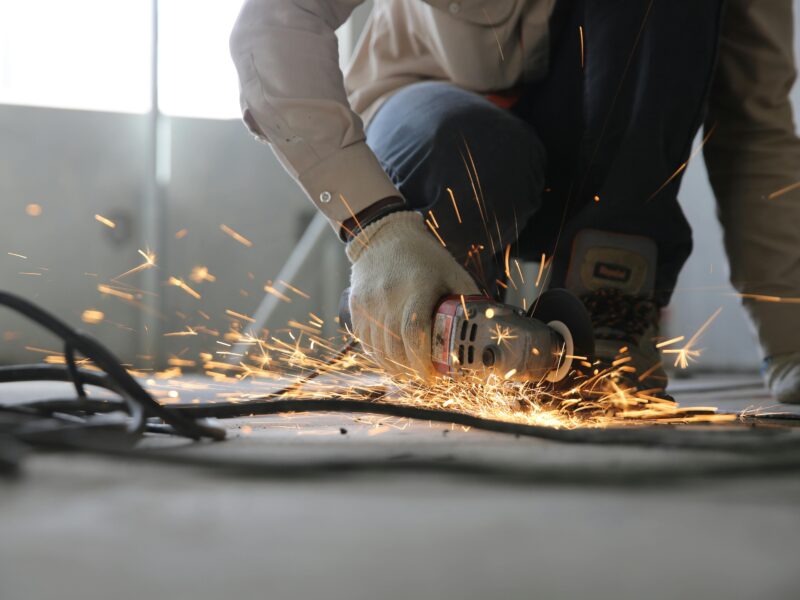Why Choose Construction Jobs in Japan?
1. High Demand for Workers
Japan faces a significant labor shortage in its construction industry due to an aging population. This gap creates ample opportunities for foreign workers.
2. Attractive Compensation Packages
Construction jobs in Japan offer competitive salaries, ranging from ¥200,000 to ¥400,000 per month, depending on the role and experience. Benefits often include accommodation, transportation allowances, and visa sponsorship.
3. Visa Sponsorship Opportunities
To address labor shortages, many Japanese employers sponsor visas for foreign workers, simplifying the relocation process.
4. Cultural and Career Growth
Working in Japan allows you to gain international experience, learn new skills, and immerse yourself in a unique culture.
Types of Construction Jobs in Japan
1. Skilled Roles
- Carpenters: Specializing in framework and interior construction.
- Electricians: Installing and maintaining electrical systems.
- Plumbers: Focusing on water supply and drainage systems.
- Crane Operators: Essential for large-scale construction projects.
2. Unskilled Roles
- General laborers for site preparation and material handling.
- Assistants for skilled tradespeople.
3. Supervisory Roles
- Construction site supervisors manage teams and ensure projects meet deadlines and quality standards.
4. Specialized Roles
- Tunnel Engineers: Vital for infrastructure projects like railways.
- Architectural Drafters: Creating technical drawings for construction projects.
Benefits of Construction Jobs in Japan
1. Visa Sponsorship and Relocation Assistance
Employers often provide visa sponsorship, covering costs and offering guidance on required documentation.
2. Accommodation and Transportation
Many companies offer free or subsidized housing and transportation, reducing living expenses.
3. Training Opportunities
Japan values skill development, offering training programs for new workers to adapt to local standards and technologies.
4. Potential for Long-Term Employment
Consistent performance may lead to contract extensions or permanent employment, opening pathways for residency.
Eligibility Criteria
1. Work Experience and Skills
- Skilled roles require formal training or certifications.
- Unskilled roles typically demand physical fitness and a willingness to learn.
2. Language Proficiency
- Basic Japanese language skills are often preferred, though some employers provide on-the-job language training.
3. Educational Background
- A high school diploma is sufficient for most roles, though technical positions may require additional qualifications.
4. Physical Fitness
- Construction work is physically demanding, requiring good stamina and health.
5. Valid Passport
- Required for visa application and travel to Japan.
How to Find Construction Jobs in Japan
1. Online Job Portals
- GaijinPot: Focused on jobs for foreigners in Japan.
- Indeed Japan: Offers a wide range of listings with filters for visa sponsorship.
- Hello Work: A government-supported platform for job seekers.
2. Recruitment Agencies
- Specialized agencies connect international candidates with Japanese employers willing to sponsor visas.
3. Company Websites
- Explore the careers pages of major construction firms operating in Japan.
4. Networking and Referrals
- Leverage connections in the construction industry or join forums and social media groups for expatriates in Japan.
The Visa Sponsorship Process
1. Job Offer
- Secure an offer from a Japanese employer willing to sponsor your visa.
2. Certificate of Eligibility (COE)
- The employer applies for a COE on your behalf, a prerequisite for the work visa.
3. Work Visa Application
- Submit your visa application to the Japanese embassy or consulate in your home country. Required documents include:
- Valid passport.
- COE.
- Job offer letter.
- Proof of qualifications.
4. Approval and Relocation
- Once approved, prepare for relocation by arranging accommodation and travel.
Popular Regions for Construction Jobs
1. Tokyo
- Urban redevelopment and infrastructure upgrades.
2. Osaka
- Industrial and residential projects.
3. Fukuoka
- Known for large-scale urban planning.
4. Hokkaido
- Seasonal construction projects due to its unique climate.
Challenges to Anticipate
1. Language Barrier
- Basic Japanese is helpful, though many companies provide language support.
2. Cultural Differences
- Adapting to Japan’s work culture, which emphasizes punctuality, teamwork, and hierarchy, may take time.
3. Seasonal Work
- Some construction jobs may slow down during winter months in colder regions.
Tips for Success
- Learn Basic Japanese
- Understanding common phrases can improve workplace communication.
- Research Employers
- Choose reputable companies with a history of sponsoring foreign workers.
- Invest in Skill Development
- Acquire certifications relevant to your trade to enhance employability.
- Stay Committed
- Demonstrating a strong work ethic and adaptability can lead to long-term opportunities.
Conclusion
Construction jobs in Japan with visa sponsorship present a golden opportunity for individuals seeking stable employment and international experience. With competitive salaries, attractive benefits, and the chance to immerse yourself in Japanese culture, these roles are highly appealing for skilled and unskilled workers alike.
Take the first step by researching job opportunities, preparing a strong application, and connecting with employers willing to sponsor visas. With determination and the right approach, a fulfilling career in Japan’s thriving construction industry awaits you.





